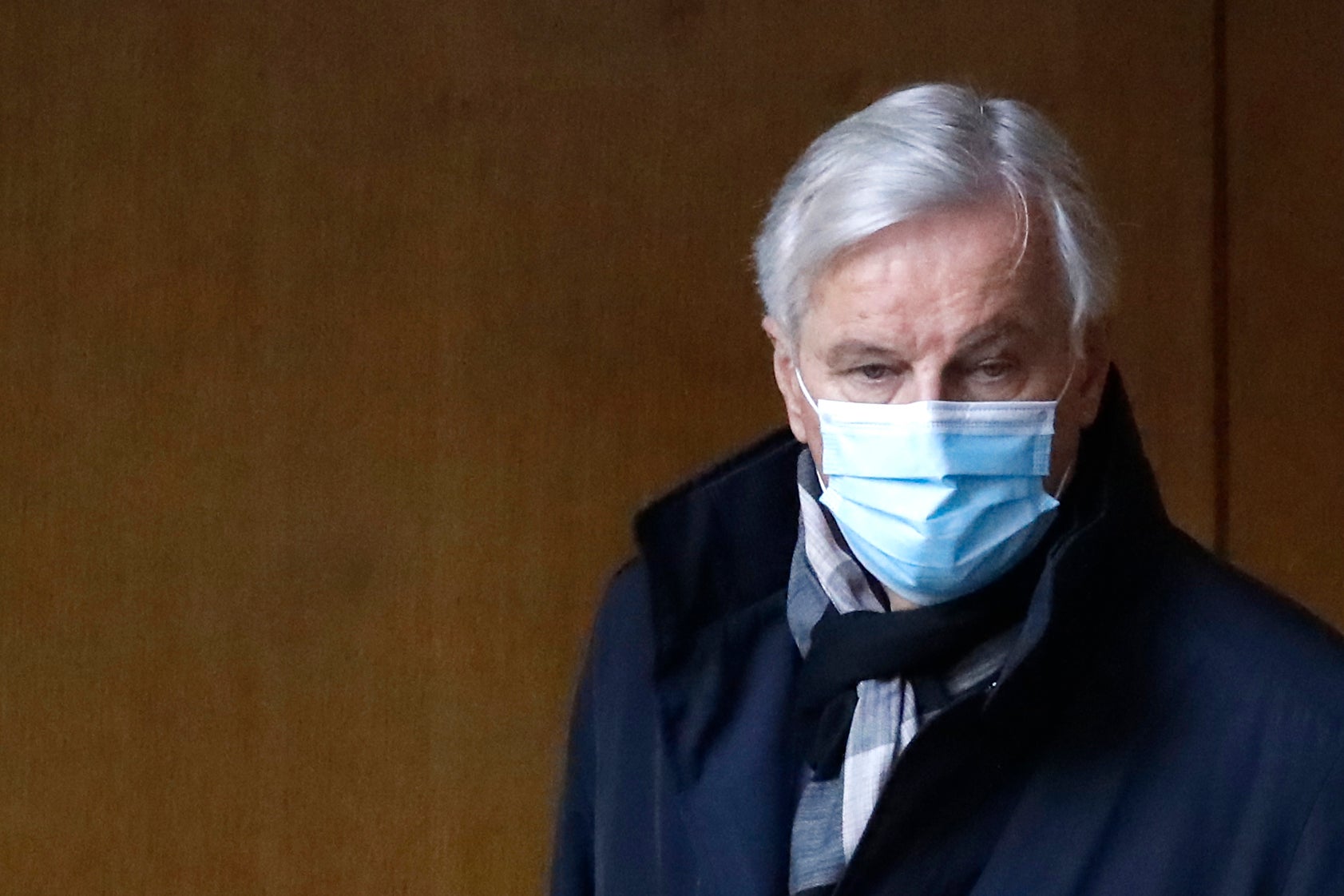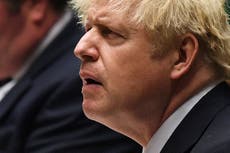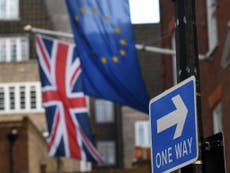Brexit: Time running out for deal as EU hints Boris Johnson’s deadline may need to flex
Talks could continue until the end of the month rather than break off next week

Your support helps us to tell the story
From reproductive rights to climate change to Big Tech, The Independent is on the ground when the story is developing. Whether it's investigating the financials of Elon Musk's pro-Trump PAC or producing our latest documentary, 'The A Word', which shines a light on the American women fighting for reproductive rights, we know how important it is to parse out the facts from the messaging.
At such a critical moment in US history, we need reporters on the ground. Your donation allows us to keep sending journalists to speak to both sides of the story.
The Independent is trusted by Americans across the entire political spectrum. And unlike many other quality news outlets, we choose not to lock Americans out of our reporting and analysis with paywalls. We believe quality journalism should be available to everyone, paid for by those who can afford it.
Your support makes all the difference.EU and UK negotiators will get back to the negotiating table next week in Brussels, ahead of Boris Johnson’s deadline to get a free trade agreement and avert a no-deal Brexit.
The prime minister had said he wants an agreement secured by the European Council summit on Thursday and Friday of next week, and threatened to walk away if none is secured – but progress has been scarce so far.
Despite some agreement on side issues like social security cooperation and human rights, the biggest sticking points – fishing access and the so-called “level playing field for regulations” – are as far away as ever.
Downing Street said there had been “useful discussions” in informal talks this week, but the prime minister’s spokesperson emphasised that there were still big differences on “important issues”.
It comes amid reports that Michel Barnier, the EU’s chief negotiator has told member states that while a deal is possible, one is unlikely to be worked out in time for next week's summit.
The EU has also emphasised time pressure throughout the process, citing the need for several months to consider and ratify any agreement struck.
But the European parliament, the EU institution most keenly aware of the time pressures because of its central role in ratification, has said it could work with an agreement that arrived by the end of the month.
That difference in deadline of two weeks is likely to prove crucial and may present a window of opportunity for a deal.
The Times reports that Mr Barnier has told EU diplomats that negotiations could continue until the end of the month, rather than stopping at the end of this week. The event would not be a surprise, given the Brexit process since 2016 has been characterised by constantly slipping and postponed deadlines.
Mr Barnier visited London on Friday for informal discussions.
“We have had useful discussions this week,” the prime minister’s spokesperson told journalists in Westminster.
“Progress has been made in some areas, however there still remains differences on some important issues but we remain committed to trying to agree an FTA [free trade agreement].
“We continue to want an agreement, we continue to want an FTA but it is important that we can agree on some issues.”
Mr Johnson and European Commission president Ursula von der Leyen agreed last weekend to intensify talks.
Speaking in Dublin on Thursday, the European Council president Charles Michel said it was up to the UK to put its cards on the table.
“The coming days are crucial, this is the moment of truth,” Mr Michel, speaking alongside the Irish prime minister Micheál Martin, said.
“I have been very clear with Prime Minister Johnson. It’s now for the UK to restore trust and to put all its cards on the table.
“The EU is doing its utmost to find an agreement with the UK, but not at any cost.”


Join our commenting forum
Join thought-provoking conversations, follow other Independent readers and see their replies
Comments